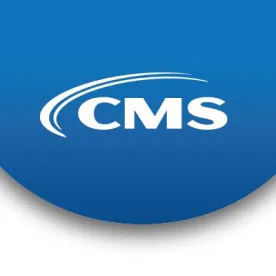Subregulatory guidance plays an important role in providing direction and insight into complex regulatory rules. Heavily regulated industries, such as the healthcare industry, are well-versed in sub-regulatory guidance. It may take the form of policy statements, opinion letters, or manuals, such as the Centers for Medicare and Medicaid Services (“CMS”) Internet-Only Manuals. Stakeholders often reference these materials in daily activities, and these materials may inform operations and compliance functions. However, sub-regulatory guidance may become controversial when those parties are subject to enforcement activities because such documents have not gone through formal rulemaking, and may not be controlling according to court cases.
Traditionally, the Department of Justice (“DOJ”), the federal agency charged with prosecuting fraud against the federal government, has relied on sub-regulatory guidance in a variety of ways. However, in 2017 and 2018, the Trump Administration issued memoranda limiting the DOJ’s reliance on sub-regulatory guidance. Those memoranda added new review and approval conditions, and limited the DOJ’s publication of, and reliance on, agency guidance materials.
When President Biden took office in January, he issued an Executive Order instructing agencies to remove any policies that were aimed at limiting regulatory action. Accordingly, Attorney General Merrick Garland issued a memorandum on July 1, 2021 formally rescinding the DOJ 2017 and 2018 memoranda, and restoring the DOJ’s traditional approach regarding the use of, and reliance on, sub-regulatory guidance (the “Garland Memo”). The DOJ Justice Manual will be revised to be consistent with the Garland Memo.
The Garland Memo states that, in the enforcement context, the DOJ may rely on relevant sub-regulatory guidance in any “appropriate and lawful circumstances, including when a guidance document may be entitled to deference or otherwise carry persuasive weight with respect to the meaning of the applicable legal requirements.” This applies to DOJ sub-regulatory guidance and sub-regulatory guidance issued by other agencies, such as CMS. Stakeholders may expect the DOJ will cite sub-regulatory guidance in litigation.
The Garland Memo also announces principles governing the DOJ’s issuance and use of its own sub-regulatory guidance:
-
Although the DOJ’s guidance documents do not generally bind the public, the DOJ may use sub-regulatory guidance to outline its interpretation of binding regulations, statutes, and constitutional provisions. Stakeholders may expect sub-regulatory guidance to be labeled as “guidance” and provide citations to the source(s) of any binding legal requirements.
-
Internal guidance documents of the DOJ may be posted to its online portal. Stakeholders may expect each document to have a unique identifying number, and include issuance and revision dates.
-
The Office of Legal Policy in the DOJ will be working with various components to ensure all of the DOJ sub-regulatory guidance documents are harmoniously drafted, such that no two documents create inconsistencies.
The Garland Memo comes at a fortuitous time for law enforcement. With the barrage of government funds due to the COVID-19 pandemic, the DOJ is increasingly ramping up its enforcement efforts. Those that received Provider Relief Funds may recall that the terms and conditions of those monies, issued in the form of sub-regulatory guidance, were ever-changing in the early months of the pandemic. The Garland Memo allows the DOJ to site those terms and conditions, as dynamic as they were, in enforcement activities.




 />i
/>i

